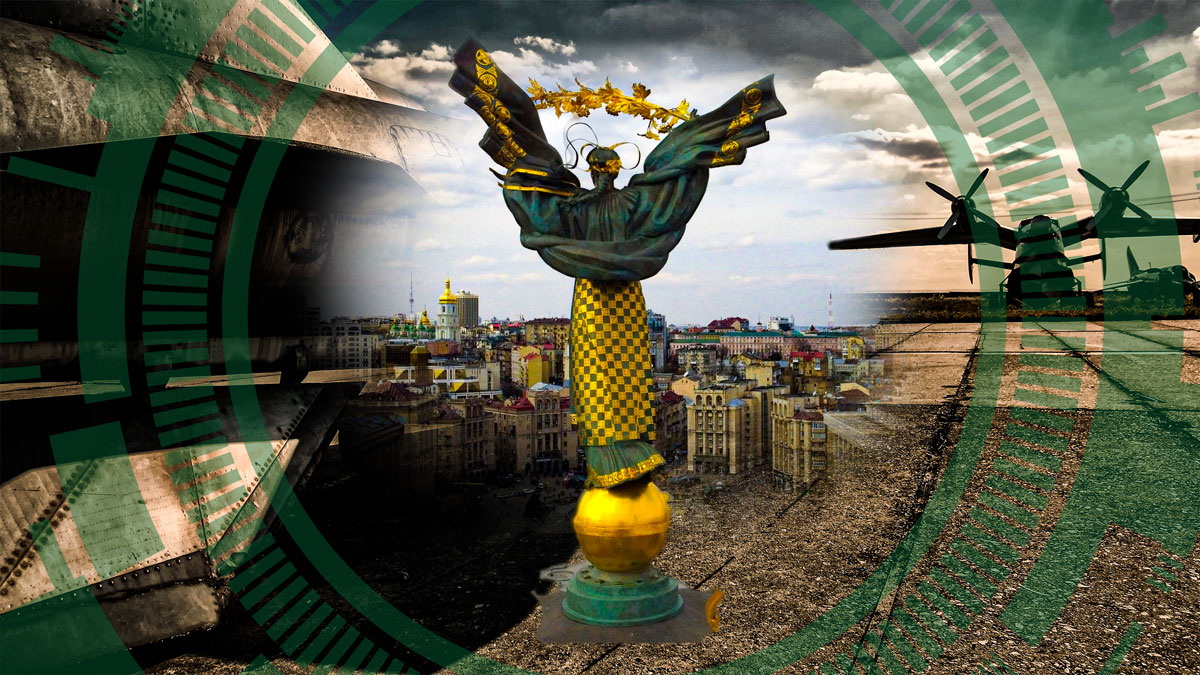
Above: Photo Collage Lynxotic / Adobe Stock
“Using cluster munitions in populated areas shows a brazen and callous disregard for people’s lives,” said the human rights group.
Russian forces used cluster bombs during attacks on Ukraine’s second-largest city of Kharkiv in what may amount to war crimes, Human Rights Watch said Friday.
“Using cluster munitions in populated areas shows a brazen and callous disregard for people’s lives,” said Steve Goose, arms director at Human Rights Watch, in a statement.
The new assessment of Monday strikes on Kharkiv, an eastern city home to over 1.4 million people, is based on photos and video evidence verified by the human rights group and was presented as Russia faces increasing global condemnation over its ongoing invasion, which has stoked fears of nuclear disaster and has already forced over one million people to flee Ukraine.
HRW already confirmed last week use of cluster munitions by Russian forces in a February 24 strike just outside a hospital in the Ukrainian city of Vuhledar. The new assessment focuses on munitions that hit the Moskovskyi, Shevchenkivskyi, and Industrialnyi districts of Kharkiv on February 28.
The rights group—which noted the “inherently indiscriminate nature of cluster munitions and their foreseeable effects on civilians”—based its new assessment on interviews with two witnesses and an analysis of 40 videos and photographs, which revealed information on explosion signatures and remnants of the rockets.
The munitions used in the Kharkiv strikes, said HRW, were delivered by Russian-made 9M55K Smerch cluster munition rockets.
Over 120 nations have signed on to an international treatybanning the use, transfer, and stockpiling of cluster munitions, which can pose deadly harm far beyond initial explosions, as unexploded submitions becoming akin to landmines. The Cluster Munition Caolition describes the weapons as being able to “saturate an area up to the size of several football fields.”
Neither Russia, Ukraine, nor the U.S., however, is state party to the treaty.
“We are seeing mounting evidence of indiscriminate attacks on Kharkiv and the price civilians are paying for these serious violations,” said HRW’s Goose.
“If these deadly acts were carried out either intentionally or recklessly,” he added, “they would be war crimes.”
The head of the North Atlantic Treaty Organization (NATO) also said Friday that Russian forces have used cluster bombs in its attacks on Ukraine.
“We have seen the use of cluster bombs and we have seen reports of use of other types of weapons which would be in violation of international law,” NATO Secretary General Jens Stoltenberg told reporters.
Amnesty International has also previously confirmed Russian forces’ use of cluster bombs on Ukraine, and open source investigative outlet Bellingcat has also been tracking Russia’s use of the weapons during the invasion.
In a Wednesday statement, the U.K. presidency of the Convention on Cluster Munitions expressed “grave” concern about reports of Russia using the weapons in strikes on Ukraine, noting that cluster bombs “have had a devastating impact on civilians in many conflict areas.”
The Cluster Munition Coalition, in a Wednesday tweet, said, “We welcome the growing number of states speaking out on—and urge all states to condemn—the unacceptable use of cluster munitions by Russian forces in Ukraine.”
Originally published on Common Dreams by ANDREA GERMANOS and republished under a Creative Commons (CC BY-NC-ND 3.0).
Related Articles:
- Is 2023 the year for Virtual Reality Workouts?
- Fitness with Apple Watch: A Day in the Life of Highly Motivated Ring Closers
- Goodbye Twitter, Hello Mastodon!
- The Vision of Steve Jobs for the Future of Apple has Barely Begun to Emerge
- Is This Jason Statham Video Real or Deepfake TikTok Account? You Decide
Enjoy Lynxotic at Google News and Apple News on your iPhone, iPad or Mac.
Find books on Music, Movies & Entertainment and many other topics at our sister site: Cherrybooks on Bookshop.org
Lynxotic may receive a small commission based on any purchases made by following links from this page